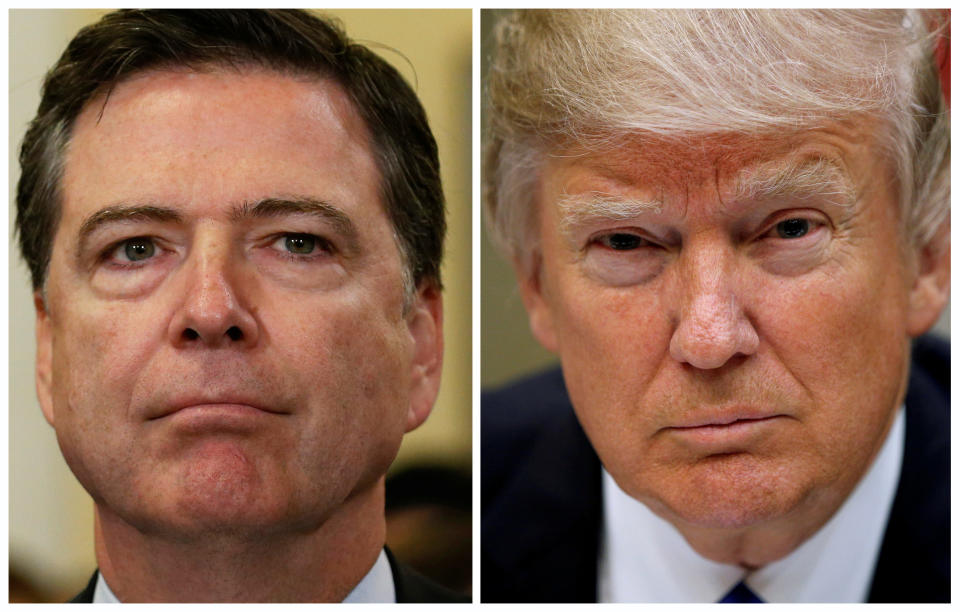The Comey firing will delay Trump’s tax cuts
President Trump says cutting taxes is one of his top priorities—but he keeps heaving barriers into the road that leads there. Trump’s abrupt firing of FBI Director James Comey is the most controversial move of his four-month-old presidency, and one that could be more disruptive than anything Trump has done so far. Since Comey was overseeing an extremely touchy FBI investigation into contacts between Trump confidantes and the Russian government, his sacking is laden with political intrigue, the whiff of self-dealing and acute national-security concerns. So what, you might say. The US government is huge and can deal with more than one thing at once. That may be true, but every major Trump initiative must pass through a narrow choke point known as the US Senate, which moves at glacial speed and now has yet another thorny matter to deal with in the vetting of a new FBI director and, undoubtedly, new hearings and investigations into what exactly led Trump to fire Comey.

Trump’s economic team initially said tax-cut legislation might clear Congress by August. They now hope for a bill Trump could sign by the end of 2017. Don’t bet on that. Before the Comey firing, there was a good chance it would take Congress until next year to pass a tax-cut bill, and now, with a brand new controversy likely to consume Washington, it could be longer than that. Possibly much longer.
In the private sector, there are 33 full work weeks left in 2017. The Senate does not operate by private-sector standards, however, and only has 12 work weeks left, accounting for recesses and vacations. If Comey and tax cuts were the only big items on the Senate’s agenda, there might be a chance of getting both done. But the Senate faces a daunting do-list, and Trump just made Majority Leader Mitch McConnell’s job considerably more difficult.

The Senate’s first priority at the moment isn’t the FBI or tax cuts or repealing Obamacare, but the most basic function of Congress–passing a budget to fund the government beginning October 1, when its next fiscal year begins. Ought to be straightforward, right? Um, nope. Politico recently predicted a “fiscal cliff” redux in which Republicans get their way in the House, where they have a comfortable majority, but Democrats play a spoiler hand in the Senate, where they only have to pick off three Republican votes to block legislation.
Trump seems not to have noticed this, but every controversy that erodes his support among centrists and independents threatens the vote of moderate Senate Republicans such as Lisa Murkowski of Alaska, Susan Collins of Maine and Bob Corker of Tennessee. Then there are Republican national-security hawks such as John McCain of Arizona and Lindsey Graham of South Carolina, who dislike Trump and would gladly toast his tootsies if there’s any actual evidence Trump is shielding a bromance with Russian strongman Vladimir Putin. How many Republicans can Trump alienate and still pass tax cuts? Virtually none. You do the math.
So once Congress passes a budget, tax reform is next, right? Nope. (Sorry, this is a long and tedious plot.) Trump has insisted that Obamacare repeal come before tax reform, as if he is proposing measures to the board of directors of a privately owned company completely controlled by him. The health bill the House passed in early May seems to have no chance of passage in the Senate, which means that if the Senate were able to come up with its own bill, Senate and House negotiators would then spend weeks, months, years or decades trying to broker a compromise. Boring! We know. Does Trump?
If Trump and Congress are still speaking by summer, Trump could change his plan and declare tax cuts the top priority, since Obamacare-repeal passed the House, and that’s good enough. But there is no tax bill in Congress at the moment that Trump actually supports, and his own tax-cut plan would replace a tax code exceeding 10 million words with … a one-page outline. Here’s a subtitle for that plan: Tax Dodgers’ Delight.
Big changes in US law are extremely complicated and take a long time to work out. The landmark tax reform law Ronald Reagan signed in 1986 took about a decade to develop, from concept to Reagan’s signature on a bill. The Democratic Congress worked on Obamacare—aka, the Affordable Care Act—for nearly a year-and-a-half in 2009 and 2010, before a plausible bill emerged. And that came after three decades of work on extending health coverage to the uninsured.
If a Trump tax-cut bill drifts into mid-2018, it will become fodder for the midterm elections, with Republicans who support the bill most likely forced to defend tax cuts for the wealthy, a key plank of Trump’s approach to taxes. Populism! Wait, what…? If Trump somehow wins the fight over the FBI, and appoints a Comey replacement who seems tough and impartial, there’s a fleeting chance tax cuts might fly. But the likelihood this all falls Trump’s way is about the same as the likelihood the Comey firing blows over. Washington isn’t a privately owned company.
Confidential tip line: rickjnewman@yahoo.com
Read more:
Rick Newman is the author of four books, including Rebounders: How Winners Pivot from Setback to Success. Follow him on Twitter: @rickjnewman.


